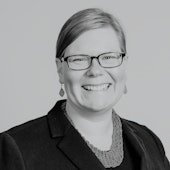In 2013, Bill de Blasio campaigned for mayor of New York City on the promise of ending the “tale of two cities,” bridging divides between haves and have-nots. A central policy proposal of his platform for fighting economic and racial injustice was making high-quality, full-day pre-K available free of charge to all of the city’s four-year olds by expanding New York’s Universal Prekindergarten Program (UPK).
Now, just over a year into his term as mayor, de Blasio’s administration has launched the pre-K expansion with remarkable speed. The administration nearly tripled the number of children in full-day pre-K programs from fall 2013 to fall 2014, and is on track to meet the full expansion goal of serving more than 70,000 children total in full-day pre-K programs by fall 2015.
Lessons from New York City’s Universal Pre-K Expansion: How a Focus on Diversity Could Make It Even Better is a study in two parts. The first provides background on how universal pre-K programs fit into the national landscape of early childhood policy, outlines the main features of New York City’s current UPK expansion efforts, and draws lessons for other cities and states interested in expanding their programs.
The second part provides an in-depth look at the issue of preschool classroom diversity in UPK, highlighting the opportunities and obstacles for integration embedded in current policies and recommending policy changes to address this issue in New York City and beyond.










